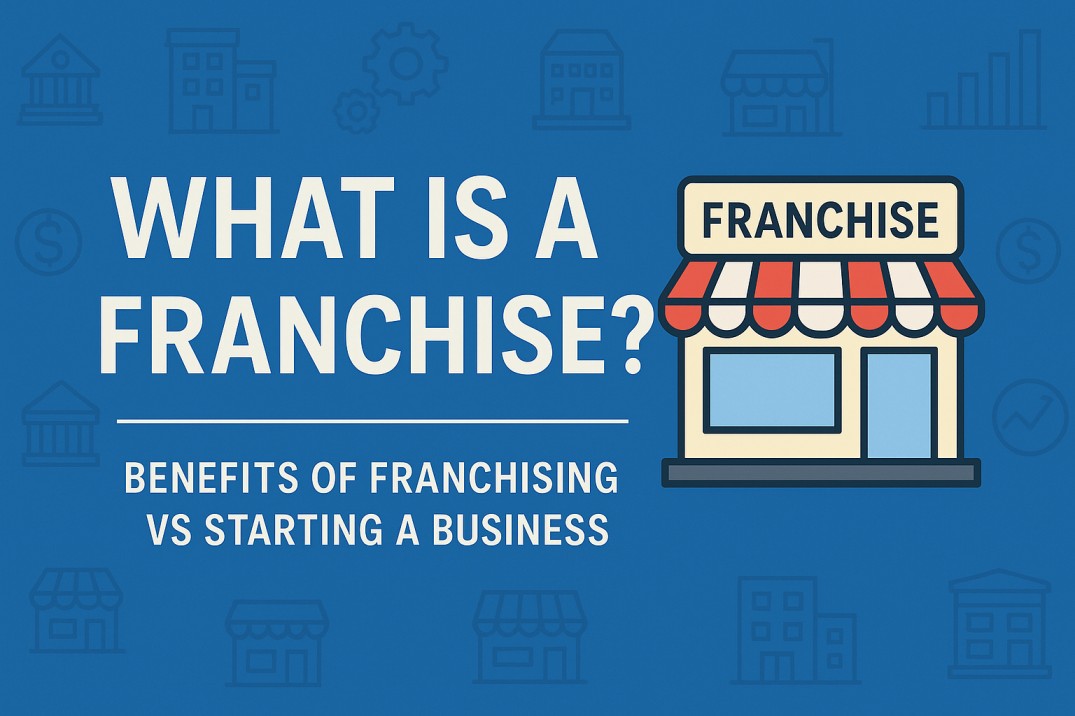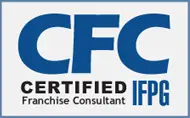What Is a Franchise? Benefits of Franchising vs Starting a Business from Scratch

If you’re looking to start your own business with low risk, you’ve likely come across the concept of franchising. But what exactly is a franchise, and how does it compare to starting an independent business? In this guide, we’ll cover everything you need to know about what a franchise is, the benefits of franchising, and how it stacks up against building a business from the ground up. We’ll also explore the top franchise industries in 2025 to help you identify high-potential opportunities.
What Is a Franchise Business?
A franchise business is a legal and commercial relationship between the owner of a brand (the franchisor) and an individual or group (the franchisee) who wants to use that brand’s name, business model, and support system to operate a similar business in a different location.
In simpler terms, a franchise is a business model where you buy the rights to operate under an established brand name—like McDonald’s, Subway, or Anytime Fitness—while following a proven system and benefiting from brand recognition, training, and marketing support.
Top Benefits of Franchising for Aspiring Entrepreneurs
Starting a franchise offers many unique advantages that make it attractive for both new and seasoned entrepreneurs.
1. Proven Business Model
Franchises come with a tried-and-tested business model, meaning you’re not starting from scratch. This lowers the risk of failure and increases the likelihood of profitability.
2. Brand Recognition
People already know and trust established franchise brands. This customer trust reduces marketing costs and helps you build revenue more quickly.
3. Training and Ongoing Support
Franchisors typically provide extensive initial training and continuous support, including operational guidance, marketing materials, and software tools.
4. Easier Financing
Banks are more likely to approve loans for franchise businesses with proven success rates, making it easier to secure startup capital.
5. Bulk Purchasing Power
Franchisees often benefit from the franchisor’s bulk purchasing agreements, which reduce the cost of goods and services.
6. Community and Networking
Joining a franchise system gives you access to a network of other franchisees, creating opportunities for mentorship and collaboration.
Starting a Business vs Starting a Franchise: Which Is Better?
Independent Business Pros:
-
Full creative and operational control
-
You keep all the profits
-
No franchise fees or royalties
Independent Business Cons:
-
Higher risk of failure
-
No built-in brand recognition
-
More difficult to get financing
Franchise Pros:
-
Lower risk with a proven model
-
Immediate brand recognition
-
Training, support, and marketing assistance
-
Easier access to funding
Franchise Cons:
-
Initial franchise fees and ongoing royalties
-
Less operational freedom
-
Must adhere to franchisor’s rules and systems
Long-tail keyword used:
-
pros and cons of franchising vs starting your own business
Top Franchise Industries in 2025 to Watch
If you’re looking for high-growth franchise industries, here are some of the best options to consider in 2025:
1. Fast Food and Quick-Service Restaurants
Brands like Chick-fil-A, Taco Bell, and Dunkin’ continue to dominate the QSR (quick service restaurant) market.
2. Health and Fitness Franchises
Gyms, yoga studios, and boutique fitness chains like Orangetheory and Anytime Fitness are booming as wellness trends grow.
3. Home Services and Cleaning Franchises
Demand for home repairs, renovations, and cleaning services has surged. Franchises like Molly Maid and Mr. Handyman are excellent options.
4. Senior Care and Healthcare Services
The aging population has led to rapid growth in in-home care and senior health services. Consider franchises like Visiting Angels or Home Instead.
5. Education and Tutoring Franchises
Parents are investing more in supplemental education. Kumon and Sylvan Learning are top names in this industry.
6. Pet Care Franchises
With more pet owners than ever, franchises like Dogtopia and Camp Bow Wow are expanding quickly.
Final Thoughts: Is Franchising Right for You?
If you’re looking for a low-risk, high-reward way to start a business, franchising may be the ideal route. With a built-in brand, support system, and scalable model, franchises offer a shortcut to entrepreneurship without going it alone.
Whether you’re a first-time entrepreneur or a seasoned investor, exploring franchise opportunities in high-growth industries could be your next big move.
Frequently Asked Questions (FAQs)
What is the average cost to start a franchise?
Startup costs can range from $10,000 to over $1 million, depending on the brand and industry.
Do I need experience to open a franchise?
Not necessarily. Many franchises offer comprehensive training programs to help you succeed, even without prior industry experience.
Can I own multiple franchises?
Yes! Many franchisees become multi-unit operators once they gain experience and profitability.




